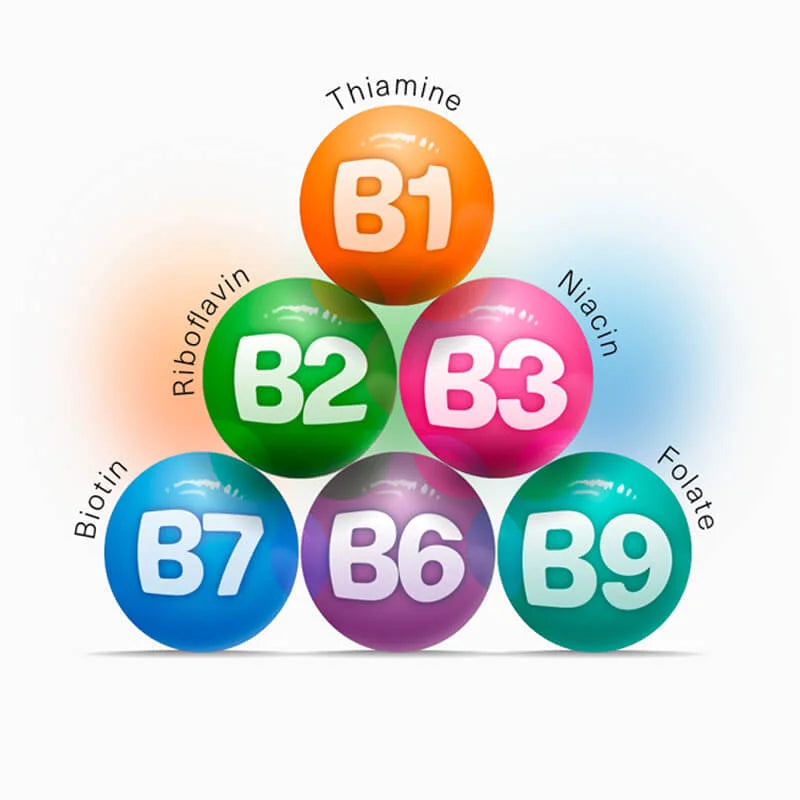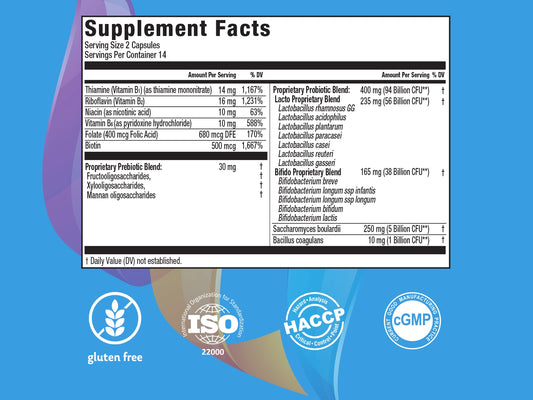B vitamins are water-soluble vitamins that play an important role in many physiological processes. Many studies highlight their unconditional connection to human life; they’re responsible for the formation of red blood cells, production of DNA, and are a key factor in maintaining healthy nerve and immune system and metabolism. B vitamins are vital for converting food into cellular energy1,* and are cofactors in cellular enzymes responsible for polysaccharide breakdown. Gut microbiota is another important source of B vitamins, as the it can synthesize different B vitamins, including biotin, cobalamin, folates, nicotinic acid, panthotenic acid, pyridoxine, riboflavin, and thiamine. However, when there are occasional disruptions of the balanced state of gut microflora, the synthesis of vitamins B is also disrupted—this is when it’s important to supplement additional B vitamins to the diet and deliver extra immune support to the body.
- European Commission. Off J Eur Union L 136. 2012;55(1924):1-40. doi:10.3000/19770677.L_2012.136.eng




